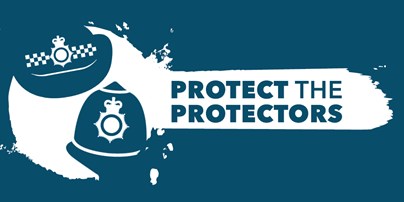Sentencing Guidelines: "I have said time and again that the Courts have a huge part to play by utilising their powers on those who assault my colleagues and other emergency service workers."
27 May 2021

Sentencing Guidelines: "I have said time and again that the Courts have a huge part to play by utilising their powers on those who assault my colleagues and other emergency service workers."
Judges and magistrates must use the new sentencing guidelines being introduced in July to ensure those who assault police officers and other emergency service workers receive the maximum tariff sentences available.
For the first time, judges and magistrates in England and Wales will have specific guidance for sentencing offences of assault on emergency service workers.
Revised sentencing guidelines for assault offences including attempted murder and common assault, and new guidance for assaults on emergency workers were published today (27 May) by the Sentencing Council https://www.sentencingcouncil.org.uk/news/item/new-guidelines-for-sentencing-common-assault-and-attempted-murder-published/
The Government has pledged to increase the maximum sentence from 12 months to two years for assaults on emergency workers through the Police, Crime, Sentencing and Courts Bill, which is currently at the committee stage in Parliament.
Government statistics show that 84 police officers a day are injured in England and Wales. 30,679 assaults last year. There are nearly 1,000 assaults on firefighters. On average, there are just over 200 reported violent attacks on NHS workers every day.
The Federation supports a maximum tariff of 24 months and not 12 months, at least, because of the likelihood of offenders being released before the completion of their sentences.
Adam Commons, Chairman of Leicestershire Police Federation, said: "I welcome the revisions announced today in the sentencing guidelines. I have said time and again that the Courts have a huge part to play by utilising their powers on those who assault my colleagues and other emergency service workers.
“This new guidance reflects on some of the threats my colleagues are facing by making specific reference to offences such as deliberate spitting and coughing being in the guidance for common assault and ABH, and the intention to cause serious harm including disease transmission.
“Let’s hope that these revisions are now put to use and that offenders realise there are consequences to their actions.”
PFEW National Chair John Apter, commented: “During the last few years, we have been highlighting to the Sentencing Council the dangers officers face and our serious concern about some perverse sentences, which has seen people walking from the court after some vicious attacks on our colleagues.
“It’s good to see that the Sentencing Council has taken on board our views about assaults on police, including the vile acts of spitting and weaponsing Covid, and these revised guidelines are a step in the right direction. What we need to see now, is judges making full use of the flexibility the guidelines provide to ensure that the sentence handed down reflects the seriousness and gravity of the crime.
“We will be watching closely to ensure we see a reduction in perverse sentences which result in thugs who attack emergency workers walking free from court with little more than a slap on the wrist.”



















